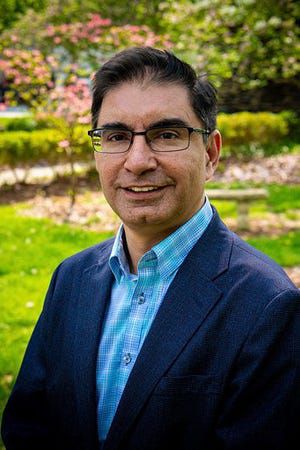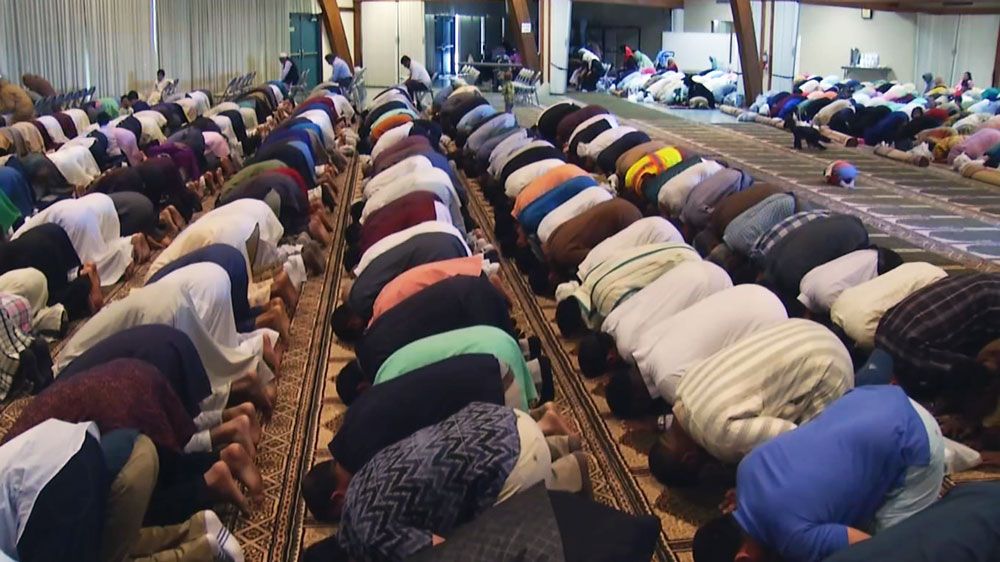LEXINGTON, Ky. — Some people may find it difficult to talk about what it is like living in Kentucky as a Muslim since the terrorist attacks of 9/11, while others deem it necessary.
What You Need To Know
- Things changed "immediately" and "dramatically" for Muslims after 9/11 attacks
- Prominent Muslim says there was an intense "fear of the unknown"
- Muslim-Americans learned from missteps after attacks
- Anti-Muslim rhetoric from former president Trump created setback
“This is our duty to share our thoughts and our feelings with fellow citizens,” said Dr. Muhammad Babar, a physician and founding president of Muslim Americans for Compassion in Louisville. “That's how we will progress and move forward as a society and as a nation, and we will keep on improving.”
Babar was born in Pakistan and moved to the United States in 1996 when he was a young physician. He was living in Buffalo, New York, on 9/11 and recalled vividly how his place in the United States, and his and people’s views of it, changed immediately and dramatically.
“Imagine that you are just living on the sidelines of the country — just kind of maybe in relatively dim light, then you are under the bright light,” he said. “That's what happened to the Muslim community. We were just living on the sidelines, and fellow citizens were curious, but nobody thought Muslims were a threat. Then, suddenly, the Muslim community, the Islamic religion, is under this poaching light, and you are being viewed as a threat. It was a very tough time for Muslims. I felt like we were walking, fully clothed, and then all of a sudden, the clothes are gone, and you're walking naked out in public. It was a very tough time.”

Babar said there was an initial “fear of the unknown” among many sides, including Muslims, non-Muslims, law enforcement and others.
“Law enforcement had never dealt with anything like this and did not know how to proceed,” he said. Our legislators, Congress, and other politicians had no clue how to move forward because of the fear of the unknown. My neighbors and colleagues did not know if they could trust me. There was a lot of suspicion in the air.”
Babar said the Muslim-American community was fearful as well, but had no choice but to adjust accordingly.
“We all learned from each misstep, and then, as a nation, we became better and stronger," he said. "I think this limelight and the tragedy of 9/11 served as a catalyst for us to become organized, to have our institutions organized. Also, it forced us to become part of the mainstream by reaching out to our fellow citizens and by becoming part of mainstream America by running for offices and participating in philanthropic efforts.”
Babar said he became more aware of his identity as a Muslim-American after 9/11.
“I think I read more about Islam after 9/11 than I read before 9/11,” he said. “I re-identified my identity as a practicing Muslim-American. I thought it was my responsibility because we are such a small percentage of the total population our voice cannot reach out to the whole of America. “Our job is to build a network of allies and have those allies assist us in spreading our message that we are no different from any other citizen. We also believe in life, liberty and the pursuit of happiness.”
Babar said he realized the best way for Muslim-Americans to become more mainstream and part of the non-Muslim community was to use the foundation of Islam: Human service.
“The foundation of Islam, human service, is just like Christianity, Judaism, and other religions, so we started our journey through a service,” he said. “We started becoming part of local nonprofit organizations to assist our fellow citizens in their time of need.”
After a tornado ravaged Henryville, Indiana, in 2012, an organized team of Muslim-American volunteers went to the town, cleaned people's houses, and delivered food and supplies.
Such things are part of “the journey,” Babar said, and the main facets of his nonprofit Muslim Americans for Compassion are focused on interfaith, environmental and philanthropic outreach. A second organization headed by Babar called Doctors for Healthy Communities aims to make people healthier. It works with Jefferson County Public Schools students to provide physical exams, hygiene and school supplies, and other needs.
“In Louisville, I can say that we took the aftermath of 9/11 in stride,” Babar said. “Muslims have taken similar journeys after 9/11 across the country. As a Muslim American, I feel much more comfortable about my place in America at this moment than I felt on 9/11.”
Babar does feel the progress made by Muslim communities after 9/11 has been dealt some setbacks, however, more recently, by the anti-Muslim sentiments from former President Donald Trump.
“President Donald Trump and his team's rhetoric really pushed us back,” he said. “A few days after 9/11, President Bush, God bless him, went to Islamic Center in Washington, D.C., and then stated that Muslims are as much American as anybody else and they are not the enemies. If President Bush had not visited the center and made that statement, things would have been much worse for Muslim-Americans. Even during his campaign, President Donald Trump started his rhetoric because he was rallying his base by stirring fear in America. Fear is a weapon, which is very strong and is very easy to use. It's more difficult to bring people together than to divide them.”
Babar said he witnessed similar tactics by politicians while growing up in a third-world country.
“President Donald Trump, in a calculated manner, came after the Latino community,” he said. “Then, he had gone after the Muslims, talking about a ban and registry. “His rhetoric affected us. I felt more uncomfortable in 2016 than I felt after 9/11, as did most Muslims in America because now the hate was being spread from the highest office in the land from the leaders who had taken an oath to protect all of us.”
Babar said he has a simple message for Muslims that are too young to remember, or were not yet born on 9/11.
“I will tell them I really feel sad for them because they will never experience America before 9/11,” he said. “Before 9/11 was the height of freedom for everyone in America. A time when you could freely enjoy your life and nobody is concerned as long as you are doing your job and not hurting anybody. That was an amazing feeling for somebody, like me, who grew up under the dictatorship of military generals. The one thing I wish is I could take my kids, all the American kids, back in time so they can feel life without any biases or shackles of hatred.”
Babar also said he often reminds Muslim-Americans that America is their country, too.
“Even at this time, even during Trump and after 9/11, America is the best country, and Americans are the best people across the world,” he said. “I tell them your future and your destiny is in your own hands by getting more involved in every sphere of life. Also, do not hesitate to share your experiences with your fellow Americans. That is the only way we can move forward to secure the place of the Muslim-American story.”



